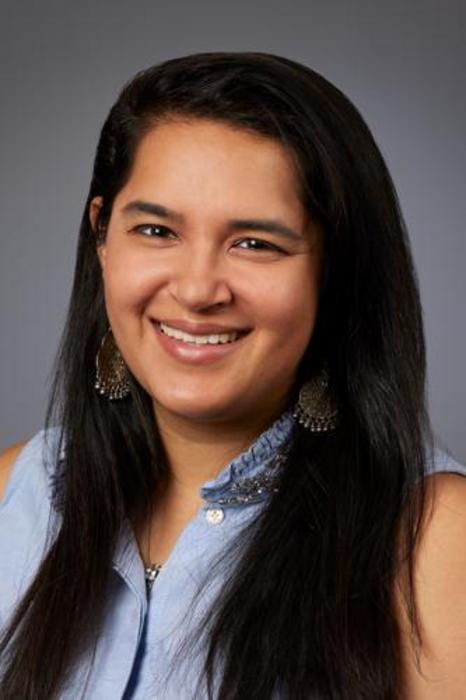The animal tranquilizer xylazine is increasingly found in the illicit opioid supply nationwide, leading to severe wounds among people who use drugs. New research led by a University of Pittsburgh physician-scientist and published in Drug and Alcohol Dependence seeks to understand wound care experiences of this population.

Credit: UPMC
The animal tranquilizer xylazine is increasingly found in the illicit opioid supply nationwide, leading to severe wounds among people who use drugs. New research led by a University of Pittsburgh physician-scientist and published in Drug and Alcohol Dependence seeks to understand wound care experiences of this population.
A cross-sectional survey of people who use drugs identified through three syringe service providers in Massachusetts found the vast majority had experienced xylazine wounds in the prior year. As the need for comprehensive, low barrier wound care grows, access to such care continues to lag behind the demand. As a result, these wounds often lead to serious complications, such as infections, or become chronic, non-healing wounds necessitating amputation.
Of 171 individuals surveyed, 87% reported xylazine wounds. Among people who inject drugs, those with xylazine wounds were 10 times more likely to engage in subcutaneous injection. Nearly three-quarters (74%) reported experiencing health care stigma when seeking wound care and more than half (58%) reported inadequate pain and withdrawal management.
“Patients with xylazine wounds often don’t have access to low barrier wound care services that would address their substance use,” said lead author Raagini Jawa, M.D., M.P.H., UPMC addiction medicine and infectious diseases physician and assistant professor of medicine at Pitt. “When health systems do not respond to the rapidly changing drug supply, patients with xylazine wounds are forced to treat themselves.”
Proper wound healing requires specialized and consistent wound care, something not easily accessible to people who use drugs. Jawa’s previous research found that most addiction care providers nationwide are inadequately trained to provide proper wound care treatment and depend on referrals to external specialists.
More than half of survey respondents reported cleaning wounds with alcohol-based sanitizers which can be corrosive for a delicate wound bed and impact wound healing. Nearly 1 in 5 individuals did not cover their wounds because of a lack of access to appropriate wound care supplies. More than half of people surveyed also used heroin or fentanyl for pain caused by their xylazine wounds.
While the survey was conducted in Massachusetts, which has both syringe service and community-based drug-checking programs, the problem of xylazine wounds is even more pronounced in Pennsylvania. The Commonwealth leads the nation in xylazine entrenchment according to one measure.
“While we don’t yet fully understand the mechanism by which xylazine and other factors cause these wounds, we do know that there is an urgent need for high-quality, longitudinal wound care and linkage to addiction treatment, all provided without judgment,” said Jawa. “People with xylazine wounds need resources, education on how to care for their own wounds and compassionate care at every point that they touch the health care system – from the hospital to the emergency room to their PCP’s office.”
Jawa, with study co-author Margaret Shang, M.D., and colleague Ilana Hull, M.D. are leading efforts along with a multidisciplinary team of providers to streamline such care across UPMC, including distributing wound self-care resources and xylazine test strips to people who use drugs and developing systemwide protocols for other clinicians to follow.
Other authors on the study include Jane M. Liebschutz, M.D., M.P.H., Cristina Murray-Kerzen, Ph.D., M.S., Yihao Zheng, M.S. and Gary McMutrie, all of Pitt; Samia Ismail, M.P.H., and Michael Stein, M.D., both of Boston University; Stephen Murray, M.P.H., and Alexander Walley, M.D., M.Sc., both of Boston Medical Center; Sarah Mackin, M.P.H., and Kenny Washington, both of the Boston Public Health Commission; Pedro Alvarez, of Tapestry; and Jaime Dillon, of Life Connection Center.
This work was supported by the National Institute of Drug Abuse (NIDA) grant K12DA050607 and the 2023 Boston University School of Public Health Impact Grant.
Journal
Drug and Alcohol Dependence
Article Title
Drug use practices and wound care experiences in the age of xylazine adulteration
Article Publication Date
21-Aug-2024



